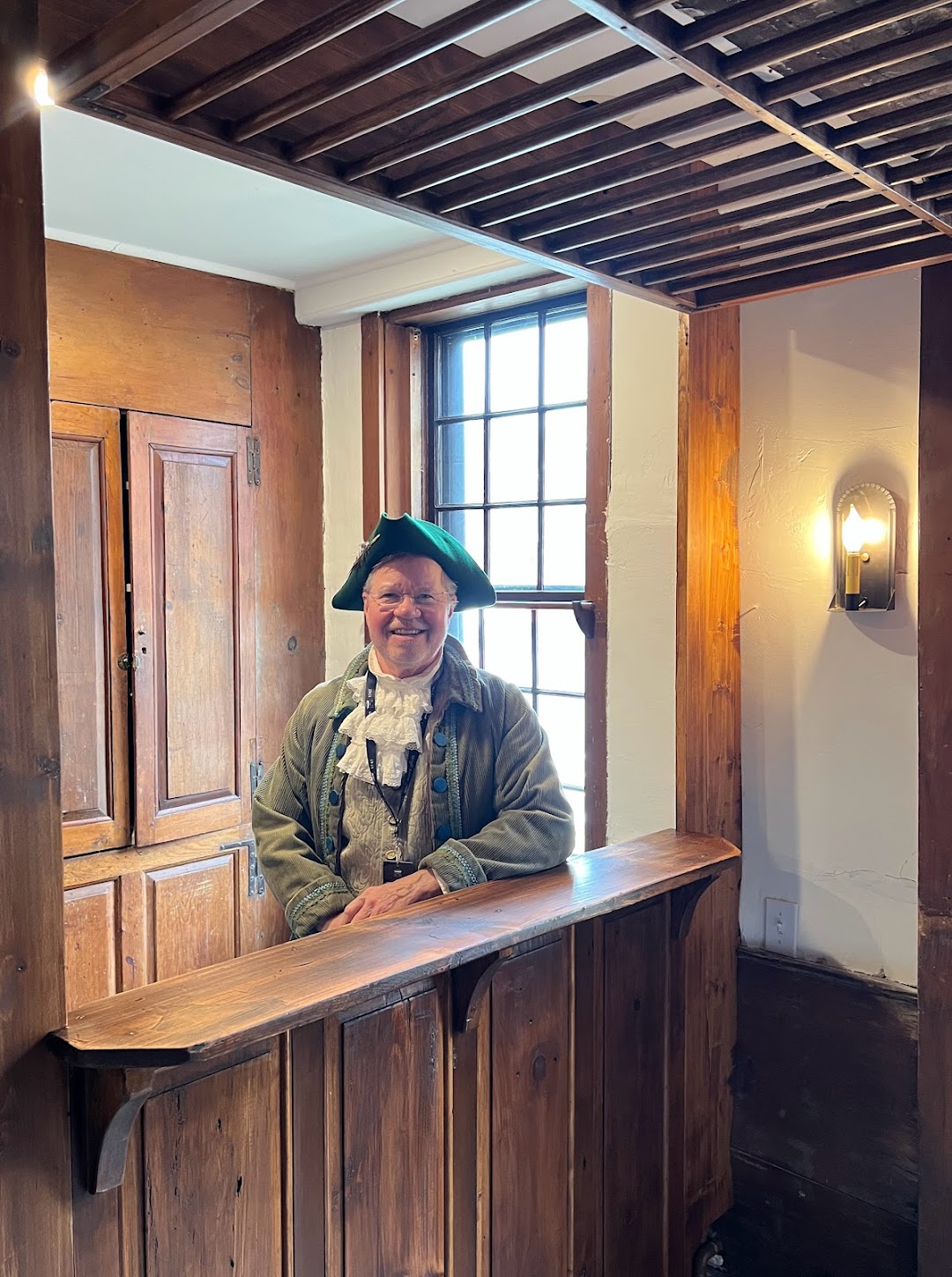Dave was enjoying his wine in front of a cozy fire when I returned to our table in the Tap Room of The Dorset Inn.
“Check this out,” I said, handing him a card I’d selected from the display in the hall outside the ladies room.
He glanced at the photograph of a sprawling stucco mansion and flipped the card over. “Hildene,” he read, “the former home of Robert Lincoln, Mary and Abraham’s son,” the only Lincoln child to survive into adulthood.
History has portrayed Mary as desirous of luxury and fine clothes, but her husband as retaining the air of his humble beginnings. I’d never envisioned a mansion such as Hildene in connection with the Lincolns, but Mary would have loved it, and I wanted to see it. We decided to visit the next day, on Tuesday.
Since we are Sylvestros, it was not surprising to find a gate barring our entrance and Hildene closed. A Google inquiry in advance of our visit would have been wise, but my belated search reassured us; we could try again on Wednesday. Instead, we spent the afternoon strolling among The Departed in Dellwood, an expansive cemetery of rolling hills, ponds, 19th century gravestones, and trees spooky -bare or Autumn-glorious.
*
Well. Young Robert did well for himself. As we stood out front in the shadow of the mansion listening to a docent’s introduction, that was clear. Having heard in the past that Robert had his mother committed because of her erratic behavior, however, my sense of him was tarnished. Mary had endured the death of three young sons, her husband’s assassination, debilitating migraines, and her share of political smear campaigns. After all that, my behavior would have been erratic too. So, after the docent filled us in on Robert’s impressive career, his rise from lawyer to Secretary of War, to ambassador, to President of the Pullman Train Company, I waited beneath the entrance portico to ask my question until the clutch of eager visitors had headed inside.
“So. Was Robert a good guy?”
The docent was tall and sturdy with the pale skin and ginger hair of the Irish. He paused, choosing his words seemingly with care, then said, “Yes. Yes. I think he was. Because I work here, immersed in his life and legacy, I have certain feelings about him. Mary was hard. She was unstable. You might not know this, and I think you’d say it was a good thing; she had the right to contest the case against her. That’s sort of surprising given the times when women had few rights.”
I agreed it was a good thing, and I have often wondered, especially when I was in the throes of menopause myself – irritable, depressed, weepy, and yes, erratic as hell - how many women similarly afflicted were committed to institutions by frustrated men. Many things raise my feminist hackles these days, and I was feeling protective of Mary Lincoln.
The docent went on. “You’ll be glad to know, she won her case and was released.”
There you go. Predictably enough, the whole, sad mess upended her relationship with her son. Still, I was eager to visit his home.
And grand as it is, Hildene does feel like a home. Unlike Mount Vernon and Monticello where reclaiming the dispersed or sold personal items of the Washingtons and Jeffersons is an ongoing project, when the 16th president’s last surviving descendant, Peggy Lincoln Beckwith, died, everything in the house was left in place. In 1978, the “Friends of Hildene, Inc.” took over preservation and maintenance of the house and 412 acres of grounds.
The foyer of Hildene is airy and welcoming, dominated by a pipe organ that periodically activates, playing a sweeping waltz that echoes throughout the home. In life, Robert’s wife, also named Mary, was the organist, and whenever that music wrapped around me, I felt she was with us.
There is an aura at Hildene that the family might simply be out for a stroll before lunch. A blanket is thrown casually over the loveseat in the parlor, a book of sheet music left open on the hassock. Wood is piled ready in the fireplace. Pictures of Abraham and Mary – Dad and Mom - are displayed on an end table just as they are in many homes.
I knew Robert was not out playing golf because his spikes and clubs are still in the corner of his closet. In her studio, granddaughter Peggy’s paints lie waiting near her easel. In a child’s room, several dolls sit against the pillow ready to be snuggled at bedtime. And the library/office? I would be happy to spend hours there with some of those books.
Upstairs, several rooms are dedicated to Abraham Lincoln. When I was a sixth grader in Pennsylvania, my history teacher downplayed the role of slavery and emphasized that the Southern battle for states’ rights led to the Civil War. I have learned otherwise in the years since, and in his second inaugural address, stenciled along the top of the walls, Lincoln makes clear slavery’s role as the cause of the war, his grief in its continuation, and his commitment to the Union of the states. "Fondly do we hope, fervently do we pray, that this mighty scourge of war may speedily pass away. Yet, if God wills that it continue until all the wealth piled by the bondsman’s two hundred and fifty years of unrequited toil shall be sunk, and until every drop of blood drawn with the lash shall be paid by another drawn with the sword as was said three thousand years ago, so still it must be said, ‘The judgments of the Lord are true and righteous altogether.’”Nearby, a bust of Lincoln gazes askance at Jefferson and the hypocrisy of that slaveowner's actions despite his declaration that "all men are created equal."
Around the corner, I stopped. Stopped before a black stove pipe hat displayed beneath a large oval mirror. Believe me, my hand went to my heart to see it. A woman supported by crutches stood beside me, her wispy gray ponytail peeking from beneath her baseball cap. A docent approached us and said, “That mirror hung in the White House and might have reflected Lincoln’s last glimpse of his image as he prepared to head to Ford’s Theater.”
Deep breath. Prickles in my nose.
“I feel teary,” said the woman next to me. “So much of this makes me teary… especially given what’s happening in the country. To read these words… to think of the blood spilled for America’s ideals… and now…”
“I know. I feel the same way,” I said. “Are you going to the No Kings protest on the 18th?”
“Oh yeah. Crutches or not, I’ll be there.”
As were we. A week after we left Hildene, Dave and I drove to Troy, New York and joined thousands in loud, but peaceful, protest. Speakers and individuals spelled each other in leading chants as we marched over a bridge spanning the Hudson River.
For a time – until his voice grew hoarse - a boy of ten or so with long black hair and swarthy skin led people within earshot in roaring, “Tell me what democracy looks like!”
“THIS is what democracy looks like!”
I have to think President Lincoln would have approved.
































